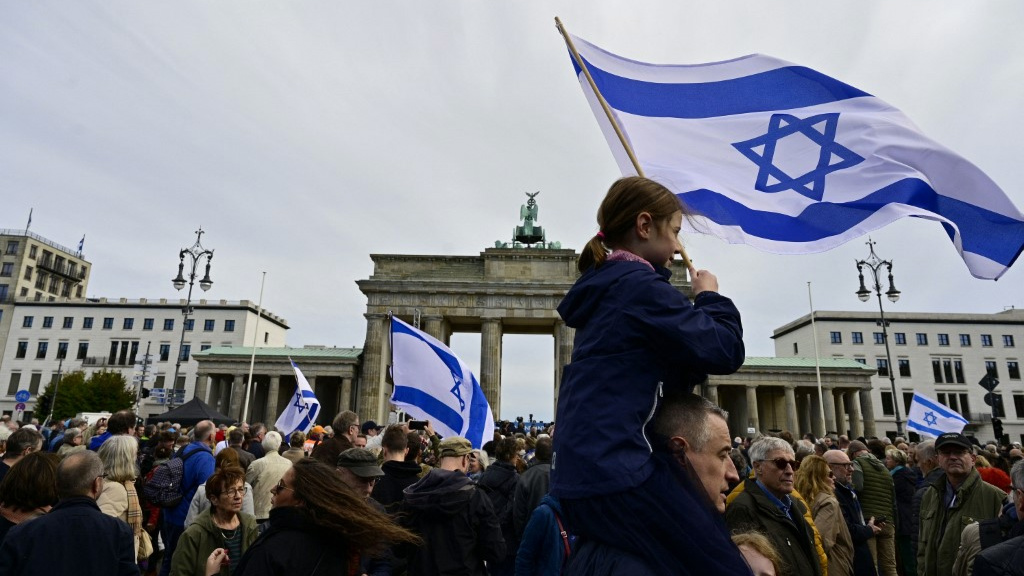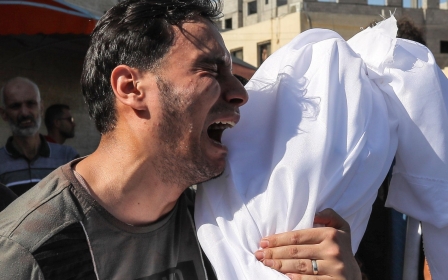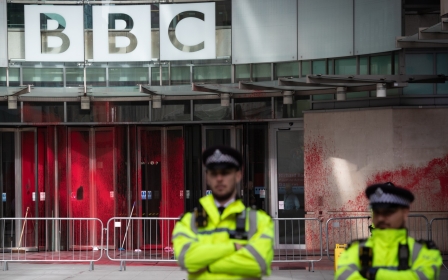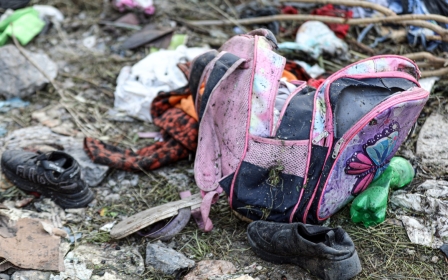Israel-Palestine war: The West’s denial of Palestinian history and humanity is enabling genocide
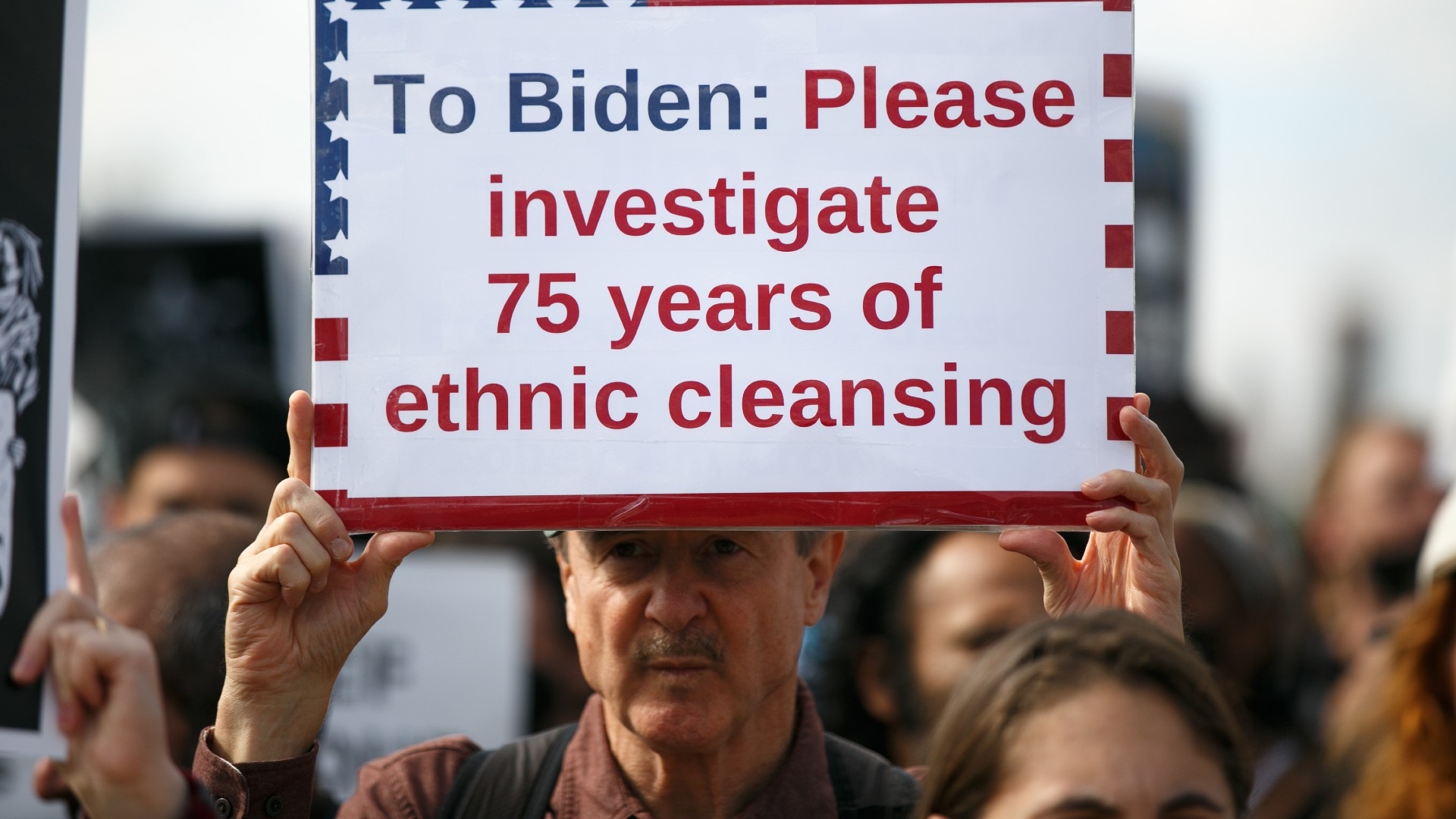
The western love of Zionism has always depended on erasing Palestinian history and humanity. Across the western world, the official and media horror at this month’s unprecedented Hamas attack on Israel, which killed an estimated 1,300 soldiers and civilians, has been accompanied by overwhelming support for Israel’s ongoing brutality towards Gaza, which thus far has killed and wounded over 22,000 Palestinians, overwhelmingly civilians.
The latest instalment of philo-Zionism has exposed more clearly than ever a ruthless double standard that underlies the West’s attachment to Israel: While Jewish Israeli life and the state are virtually sacrosanct in the contemporary West, Muslim and Christian Palestinian life is fundamentally devalued.
In the shadow of this double standard, attempted genocide is unfolding before our eyes.
Philo-Zionism relies on two pillars. These include a generalised western view that Israel’s creation is a just and moral recompense for the history of European antisemitism that culminated with the Holocaust; and the consistent racist demonisation of Israel’s opponents as non-western barbarians of a peculiar antisemitic type.
Indeed, western support for Israel is rooted in the denial of Palestinians as a people with a centuries-old history and culture in the land of Palestine.
New MEE newsletter: Jerusalem Dispatch
Sign up to get the latest insights and analysis on Israel-Palestine, alongside Turkey Unpacked and other MEE newsletters
The Balfour Declaration of 1917 infamously did not refer to Palestinians or Arabs directly, but simply alluded to the presence of “non-Jewish communities” who paled in historical, moral and political significance when compared with the “Jewish people”, whose national aspirations the British government upheld.
The fact that Arab Palestinians, both Muslim and Christian, comprised the overwhelming majority of the population of Palestine at the time was inconsequential to Jewish and Christian Zionist thought and practice.
Settler-colonial Zionist structures
Western statesmen, together with European Zionist leaders who had full access to the halls of western power in a manner that distant Palestinian Arabs did not, transformed this elision into enduring settler-colonial Zionist structures in Mandatory Palestine between 1920 and 1948.
Even after Muslim and Christian Palestinians protested, petitioned and rebelled in the 1920s and 1930s against the philo-Zionist colonial architecture of the Mandate, they were unable to change western attitudes, which systematically privileged European Jewish Zionists over native Palestinians.
Follow Middle East Eye's live coverage for the latest on the Israel-Palestine war
In the wake of World War II and the Holocaust, European and American politicians and intellectuals doubled down on their philo-Zionism. They knew full well that the creation of a Jewish state in multi-religious Palestine would inevitably dispossess and displace the indigenous Palestinian majority who owned the vast majority of its land. They enabled native dispossession.
Racist colonial thinking about the expendability of “natives” was accompanied by an underlying ideological Zionist claim that Palestine, based on divine promise, belonged to the Jewish people far more than it did to the indigenous Arab population. In the aftermath of the Second World War, as historian Daniel Cohen argues, a new sympathy for Jews and Judaism reflected a renewed sense of morality in European countries. This philo-semitism, though, was measured by its love of Zionism.
The 'good' Israel never provokes violence; it merely 'retaliates' against the sudden and shocking barbarism of the terrorists
Because Israel was created on the ruins of an Arab society, the implied atonement for the western persecution of European Jews came at the expense of Palestinians. It still does.
This immoral calculus continues to inform a great deal of western discourse about Israel. The entire ethical edifice of an inward-looking, Eurocentric, post-war western humanism - its museums of remembrance, its discourse of tolerance and reflection, and its obsessive grappling with its own antisemitic past - is ultimately built on the backs of native Palestinians, who were chased out of their homes and also out of history.
Palestinians have always resisted this tendentious morality, and their own ethical and political marginalisation. But Palestinian resistance - including “terrorism” - has consistently been decontextualised, and depicted as irrational and immoral by western powers and mainstream media.
The “good” Israel never provokes violence; it merely “retaliates” against the sudden and shocking barbarism of the terrorists. Whether secular or Islamist, civil protest or armed struggle, Palestinian resistance is immediately inscribed within a prejudicial narrative framework.
Centre stage of modern history
The settler-colonial Jewish state of Israel is normalised at the centre stage of modern history, while Palestinians are relegated to its backstage - at best, languishing as unseen wards of western and international humanitarianism, and at worst, as “evil terrorists” who must be defeated at any cost.
It is exceedingly difficult for stateless and oppressed Palestinians to be heard, no matter how loudly they knock on the door of western consciousness.
The basic facts of their indigenous history and society, turned upside-down by colonialism, are ignored. Their profoundly pluralistic and ecumenical culture, shaped by Islam and Christianity, is reduced to a caricature of Islamic fanaticism.
All this denial and erasure enables the canard that what motivates the Palestinian desire for self-determination is irrational hatred, rather than a basic, universal human desire to live freely and with dignity.
This representation of Palestinian anti-colonial resistance as barbarism draws on a much older western colonial tradition of demonising any form of indigenous or slave revolt against oppression. Haitian revolutionaries who overthrew French slavery were depicted as bloodthirsty savages. So too were Black slaves in North America who dared to revolt, most famously Nat Turner’s violent slave uprising in 1831, which was ruthlessly crushed by Virginia slaveholders.
The genocide of indigenous peoples across North America was premised on the devaluation of their lives and histories, before this was actualised by the US Army and its state militias’ guns, bayonets and cannons. The massive Indian uprising against British colonialism in 1857, similarly, was depicted as an expression of the superstition and innate fanaticism of the “Orientals” against British imperial civilisation.
And from these 19th-century antecedents came the western demonisation of the major anti-colonial revolutions of the 20th century. In every case, whether that of the Algerians, Kenyans, South Africans, Syrians, Palestinians, Iraqis or Vietnamese - and the list is of course much longer - the constant, ubiquitous refrain in the West was horror at native savagery, barbarism and terrorism.
Uniquely among any other subjugated peoples engaging in anti-colonial struggle, Palestinians have the added burden of being oppressed by the archetypical victim in modern Eurocentric western consciousness. For this reason, while famous leftists of the western world began to sympathise with anti-colonial struggles in Algeria, they rarely expressed similar solidarity with Palestinians. Some, such as Jean-Paul Sartre, eventually abandoned them altogether and sided with their oppressors.
'Victims of the victims'
In the decades after the 1967 war, the systematic creation of a memorialisation culture, centred on the horrific evils of the Holocaust, has been seen across the contemporary West. This culture has reinforced the sense that across all human history, one people more than any other suffered indelible persecution until the creation of their nationalist state, where Jewish “pioneers” made the “desert bloom”.
In such a Eurocentric moral framework, the fate of colonised Palestinians becomes basically inconsequential, if not irrelevant. Zionist ideology, moreover, is premised on the conviction that the state of Israel represents, even embodies, the fate of the Jewish people; hence, to attack Israel is to attack the Jewish people.
To be the “victims of the victims”, as Edward Said put it, makes the Palestinian anti-colonial struggle almost Sisyphean. Decontextualised and dehistoricised, Palestinian resistance against the Jewish state is seen, felt and sensed as a terrible reincarnation of a demonic antisemitic past.
It relocates the terrain from which Palestinians act from one rooted in their own history and lived experiences to a Eurocentric drama familiar to western publics
Philo-Zionism now holds that to “stand with” the colonising state of Israel is not to hate Palestinians, but to love Jews; but to stand with the Palestinian liberation is not to love Palestinians, or humanity, justice or freedom, but to hate Jews. This results in the conflation of Palestinian liberation with antisemitism, and the criminalisation of solidarity with Palestinians across Europe and the US.
The shocking statement by US President Joe Biden that the October attack by Hamas was “as consequential as the Holocaust” is replete with dark meaning. The ubiquitous refrain that Hamas is “evil”, and that the group’s attack was the worst attack against Jews since the Holocaust, transforms the Palestinian struggle from an anti-colonial one to an antisemitic one.
It relocates the terrain from which Palestinians act from one rooted in their own history and lived experiences to a Eurocentric drama familiar to western publics, in which the only significant actors are evil Nazis, innocent Jewish victims, and their American and allied saviours.
Christian and Jewish enthusiasts for Israel are thus confirmed in their conviction that Palestinians are not resisting a colonising state that was built coercively on their land - one that has devastated their lives, brutalised their families, and besieged, exiled, harassed, intimidated, humiliated, incarcerated and murdered them for decades with impunity. Rather, Palestinians kill Israelis simply because they hate Jews.
Only the total denial of Palestinian history and context makes such a preposterous conclusion tenable. And it makes genocide possible once again.
The views expressed in this article belong to the author and do not necessarily reflect the editorial policy of Middle East Eye.
Middle East Eye delivers independent and unrivalled coverage and analysis of the Middle East, North Africa and beyond. To learn more about republishing this content and the associated fees, please fill out this form. More about MEE can be found here.



